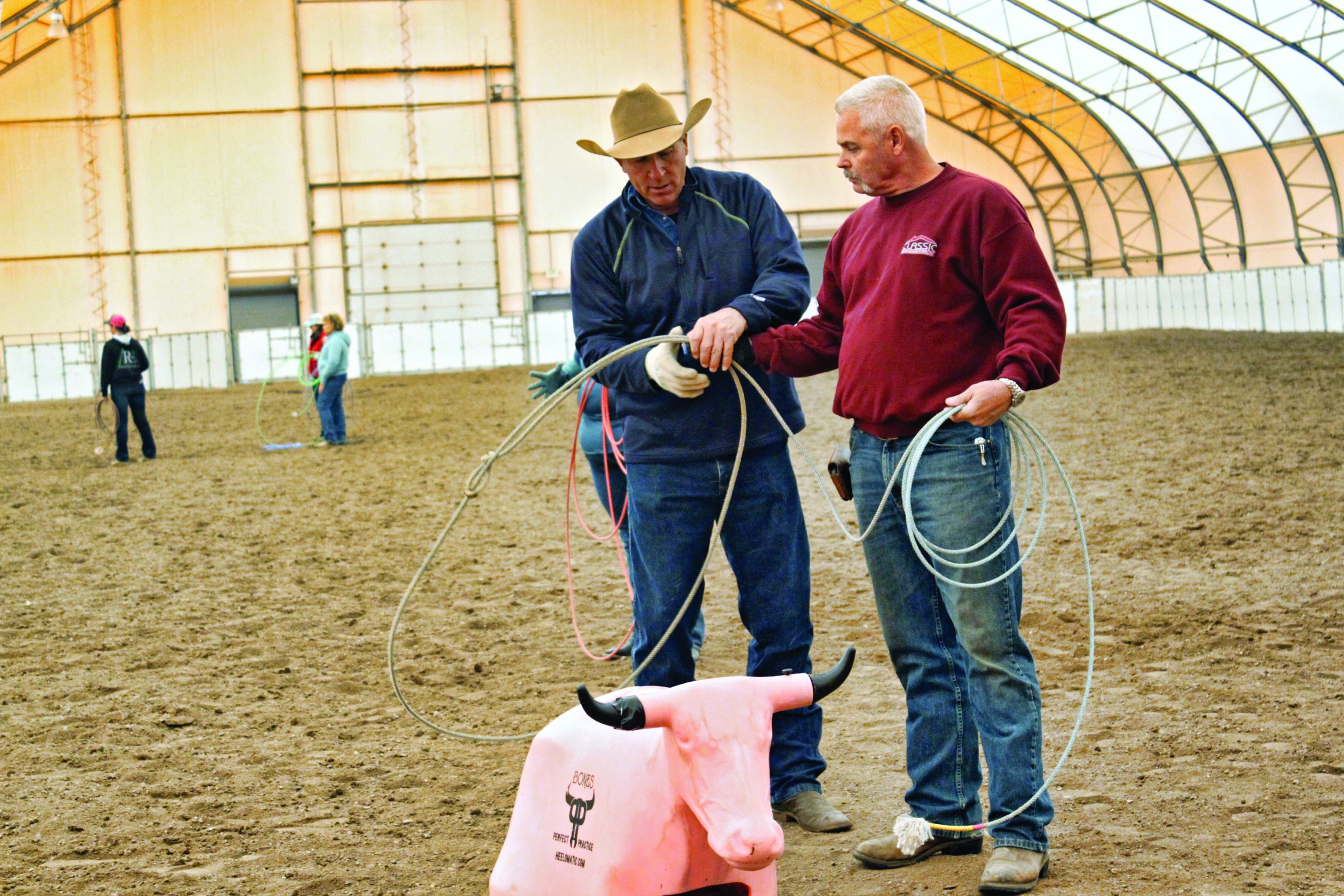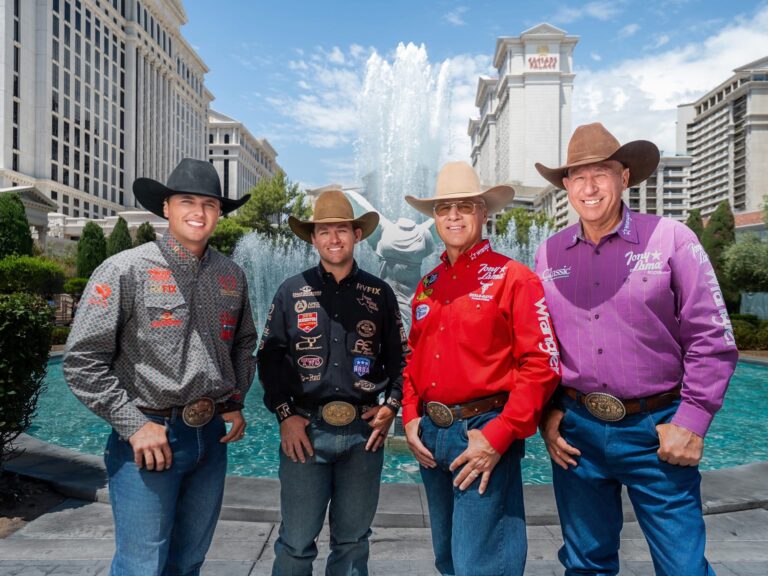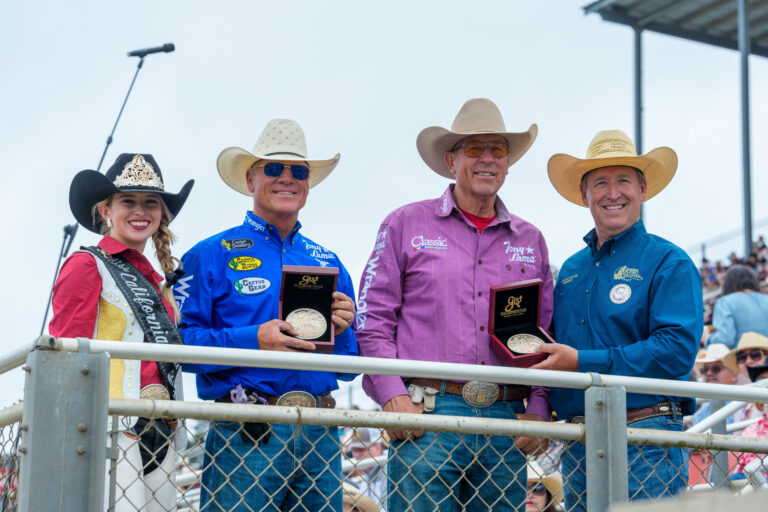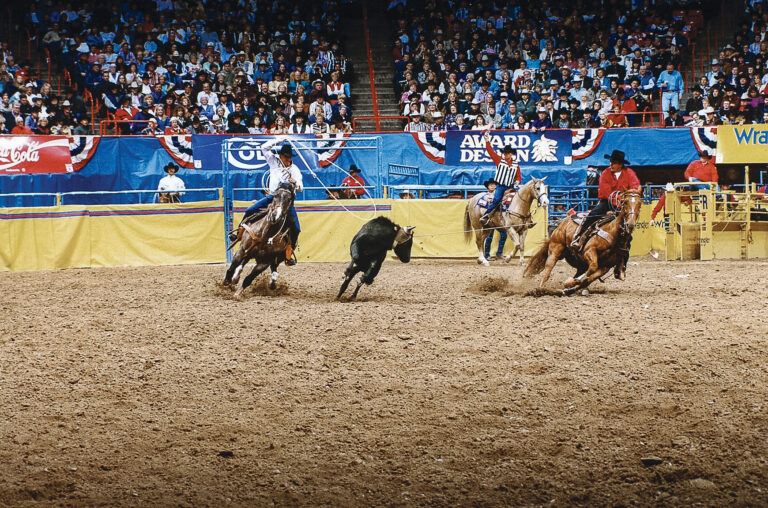Whether you’re talking about everyday life or roping, the more discipline and good habits you have, the more likely you are to succeed. Having a strong structure and foundation carries over to a productive life. If you apply those same principles to roping, good horsemanship and roping habits result in improving your odds of succeeding.
Clay (O’Brien Cooper) and I have taught about 30 roping schools in the last year. One of the points we try to get across to our students is the value of good habits. Going to a roping school is not about just roping a bunch of steers. We work on students’ foundation, from roping the dummy to machines and live cattle. We try to help ropers develop steps—a blueprint and a plan—that’ll help take their roping to the next level.
[RELATED: Know Your Roping Blueprint with VonAhn]
[READ: The Gap Between Good and Great]
We help people work on their horsemanship and their roping, and that includes developing good habits. The practice pen is as important for your horse as it is for you. Catching that son of a gun is the task at hand, and if your horse is scoring, running, rating, pulling and facing good, it makes that task a lot easier. You can buy the finest-tuned, best-minded horse, and without horsemanship skills and good habits you can wreck him really fast by hot rodding him on hard-running steers and not taking care of what he needs to keep working.
You need to have self-discipline in all areas of your roping. That includes the good habit of buying a horse that suits your skill set and what it is you’re trying to accomplish. If you’re a novice roper, a solid, older horse is like money in the bank. At that stage, you need to focus on your roping, so throwing a young, green horse into the mix can be like putting gas and fire together.
No one’s born with natural horsemanship skills, so make a habit of getting good advice on that. Seek advice from people who know what they’re doing. Thank God there was a Thomas Edison, who invented electricity, or I’d still be living in a cave and rubbing sticks together to try and make a fire. I didn’t have those skills, and Thomas Edison knew nothing about roping. Sometimes it takes someone else’s wisdom and knowledge on their area of expertise, and it’s a good habit to seek that.
[READ: Five Habits Kids Should Avoid in the Roping Arena]
Good habits can be as simple as just riding your horse more, if you haven’t grown up riding a horse and swinging a rope at the same time. Go gather cattle. Go to a branding or a horsemanship clinic. I was fortunate to grow up around horses and cattle, and that insight has been very valuable. If you’re new to this game, gather that experience any way you can. Also understand that there’s a lot of trial and error when you rope. I’ve made every mistake you can make, and the lack of knowledge can be very expensive.
Create good habits on the roping side, too, starting with seeking expert advice. It’s easy to develop bad habits when you don’t learn in stages and steps, or if someone who’s not an expert makes suggestions that are not fundamentally sound. You might go catch one, then panic about getting your slack and dallying, for example, if you haven’t properly prepared ahead of time.
[READ: Jake Barnes: Take Good Care of the Good Ones]
[RELATED: Five Flat with Turtle Powell: Keeping Your Good Horse Good]
We put so much emphasis on catching that steer with your right hand, but that left hand is huge. They say you rope with your right hand and win with your left hand. You have to use that left hand to control and maneuver your horse. There are five brains involved in every run, and every one of those perspectives affects the outcome. Even if everybody’s on the same page, trying to make it all come together in one fluid effort is hard.
The best ropers in the world make it look easy, but that comes from a lifetime of hard work. There’s no better feeling than making a smooth run on a good steer, when everything is in sync and it all comes together. That all goes back to good habits and strong fundamentals. Bad habits get in the way of progress. Hard work practicing doing things right is the hard way, but that mindset might be the best habit of all.









